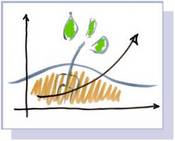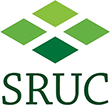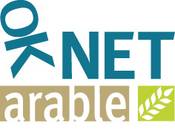Collaborations
CAPSELLA - Collective Awareness PlatformS for Environmentally-sound Land management based on data technoLogies and Agrobiodiversity

Capsella develops innovative ICT solutions tailored to the needs and requirements of farmers communities and networks and other actors engaged in agrobiodiversity.
To ensure that the ICT tools released respond to the farmers needs and requirements, the CAPSELLA adopts a real bottom-up participatory approach, elicited through physical meetings such as workshops and hackathons and a dedicated online platform.
In fact, in CAPSELLA farmers communities and networks interact with agroecology, agri-food and ICT experts to test, validate and select the innovative applications and tools best suited to their needs.
The scope of the project is also to collect open data relevant to agrobiodiversity-based sustainable food systems by focusing on three scenarios: field, seed and food and to communicate the importance and added value, for all the actors involved, to use open data.
Website: www.capsella.eu
Institute for Soil Conservation & Sustainable Agriculture

The Institute for Soil Conservation & Sustainable Agriculture is an independent Service Institution. It offers Analyis, Consulting and Training in Soil Conservation and Sustainable Agriculture Management Practice.
Website: www.gesunde-erde.net
SRUC - Scotland’s Rural College

Website: www.sruc.ac.uk
iSQAPER - Interactive Soil Quality Assessment in Europe and China for Agriculture Productivity and Environment Resilience

To manage the use of agricultural soils well, decision-makers need science-based, easy to apply and cost-effective tools to assess soil quality and function. Moreover, assessments must be accompanied by recommendations relevant to the land user at a given moment and location. At present, such tools are too expensive, too complex, unbalanced regarding attention to different aspects of soil quality, and weakly linked to management recommendations. Furthermore, policy decisions need to consider the management of agricultural soils in the wider context of trade-offs with other economic sectors, and ecosystem service impacts and contributions (i.e. the soil environmental footprint). Due to such interactions, procedures are needed that enable various potential stakeholders to indicate vulnerabilities and influence decisions in a timely way. Hence, various stakeholders, including policy-makers, industries and land users need to overcome knowledge gaps and integration gaps in order to link soil quality indicators, management options, and implications for ecosystem service provisioning of agricultural soils.
Website: www.isqaper-project.eu
OK-Net Arable - Organic Knowledge Network Arable

OK-Net Arable aims to improve the exchange of knowledge among farmers, farm advisers and scientists to increase productivity and quality in organic arable cropping all over Europe. The project has three specific objectives:
- to synthesize the practical and scientific knowledge already available about organic arable farming, and to identify the best methodology in knowledge exchange. Based on this, easily understandable education material will be developed
- to create a European network of farmer innovation groups. This network will serve to exchange experiences and test the education material developed in the project
- to create an online platform for knowledge exchange across Europe unique in organic farming
Website: ok-net-arable.eu
 This website was archived on January 11, 2020 and is no longer updated.
This website was archived on January 11, 2020 and is no longer updated.
